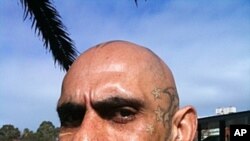In Australia there are still strong emotions around a contentious social policy that ended in the 1970s. For nearly 100 years, the Australian government forcibly took children from Aborigine families. A small number of them were raised abroad, without knowing their biological family. Levon Ennis, 42, was raised in West London before his involvement with gangs saw him jailed for more than 10 years. He has returned to Australia full of remorse for his crimes but is still struggling to discover his true identity.
Apology
“As prime minister of Australia, I am sorry. To the mothers and the fathers, the brothers and the sisters, for the breaking up of families and communities, we say sorry,” said Kevin Rudd, then-Australia Prime Minister.
In 2008, Rudd publicly apologized for the forced removal of Aboriginal children from their families. He said it was an act of “sheer brutality.” These youngsters became known as the “Stolen Generations”. Many were sent to state or church-run boarding schools across Australia, while a very small number ended up with foster parents overseas. Some went to Holland, while others were sent to Britain.
Lost identity
“All the time that I spent in England I’ve had this feeling of where do I belong, what are my people, who am I, not knowing my identity," Ennis said. "It plagued me for 35 years of my life, without a shadow of doubt.”
Ennis was taken from his Aboriginal mother when he was born in Sydney in 1969. She was told he was stillborn, but within weeks he was adopted by a family in London and was oblivious to his Aboriginal heritage. He went to a private school and studied art at Warwick University in the English Midlands. Despite a privileged upbringing, he became caught up with football hooligans and spent 12 years in prison for drugs and weapons offenses. On his release from prison he came back to Australia to reclaim his lost identity.
“I got involved with the Chelsea supporters and I ended up being a member of the Chelsea Head Hunters," Ennis explained. He admits, the experience lead him down some fairly dark alleys.
"Yes, some dark alleys. It got me into not only violence but the distribution of firearms and drug distribution and on top of those both come violence. And, this was all just to sort of find acceptance of who I am, where I am, that lostness in me I think. And, my close companions in the gang were my family, what I thought were my family, you know. That’s where I found acceptance in them, trying to obviously fulfill what had been taken away from me in this country.”
Restoring dignity
Ray Minniecon, an Aboriginal pastor, says the authorities are failing to help such vulnerable people.
“The government has still a long way to go in trying to resolve some of those issues of the past because they don’t go away," he said. "They live in our spirits and in our minds, and in our families and in our history. And we carry them into the future anyways and even though we’re trying our hardest to overcome them, they still trip us up.”
The removal of Aboriginal children went on for almost a century and it remains a contentious part in Australia’s history. Was it a deliberate attempt to kill off indigenous culture or was it an act of compassion by those seeking to protect the vulnerable?
Alison Holland from Macquarie University says the debate continues. “There were a lot of people -- missionaries, ex-missionaries, people who’d been involved in it, patrol officers, people who, for example, might have had to actually gone to collect the children -- who swore that it was not about a process of diluting Aboriginal culture, but that it was about taking care of children who were neglected," she said. "And then there are, of course, other people who, including many Aboriginal people themselves, of course, who say that it was very much about diluting and eradicating Aboriginal culture.”
Robbed of culture
What is beyond doubt is that tens of thousands of youngsters were spirited away. They were forcibly separated from their families, stripped of their identity and robbed of their culture. Some have had to wait until middle age to try to find those missing pieces.
“Within the hours of landing and walking the streets of Sydney I felt a connection, a spiritual connection, a belonging," Ennis stated. "I realized I was home, I was where I belong and I shouldn’t have been taken from here in the first place.”
Ennis’ found his biological mother, whom he says is not interested in getting to know him. He has also been rejected by several of his seven siblings. He says he still hopes his family members change their mind and choose to get to know their long-lost sibling.




